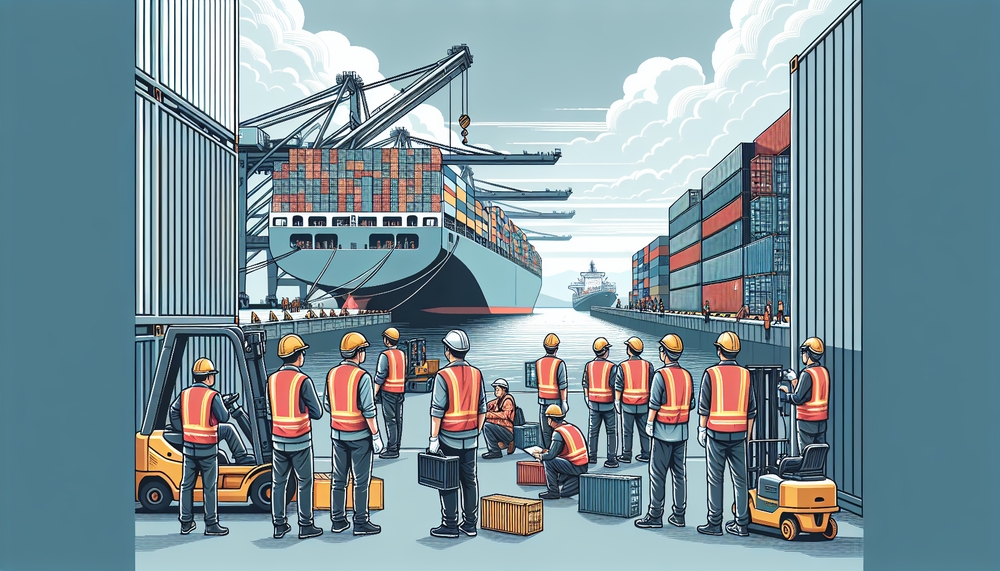Published
- 3 min read
The Rescinding of the Chabahar Waiver is Not a Setback for India

India’s Strategic Vision: Beyond the Chabahar Waiver
The recent decision by the United States to rescind the sanction waivers on Iran’s Chabahar port marks a complex phase in South Asian geopolitics. Widely perceived as a potential stumbling block for India’s strategic regional ambitions, this move deserves a deeper analysis to understand its real impact on India’s long-term plans. Critics have prematurely signaled a geopolitical setback for India, yet such an assertion overlooks the depth of India’s regional strategy, which extends far beyond the boundaries of Chabahar alone.
Diversified Connectivity Strategy
While the Chabahar port project represented a substantial investment for India—both financially and strategically—its relevancy may be weighed against India’s broader connectivity strategy. Initiatives such as the International North-South Transport Corridor (INSTC) are poised to reconfigure trade routes stretching from Mumbai to Russia, providing an alternative to Chabahar that remains resilient despite fluctuations in U.S. foreign policy. The multi-modal network of sea, rail, and road linkages rallies India’s efforts to forge stronger ties with Central Asia and beyond.
In addition, India’s burgeoning partnerships with Southeast Asian nations and established maritime routes through the Indian Ocean stand ready to supplement any gaps left by the rescinded Chabahar waiver. These initiatives showcase India’s commitment to a region-wide connectivity matrix that integrates land and sea routes to reinforce economic ties across Asia.
Challenges and Opportunities in Afghanistan
The strategic role of Chabahar in bolstering Afghanistan’s trade alternatives has undoubtedly been emphasized. However, Kabul himself may need to reassess its reliance on this single port for all import-export activities. India’s engagement with Afghanistan doesn’t hinge solely on Chabahar; other projects such as the Shahtoot Dam and regular bilateral trade agreements provide a foundation for sustained Indo-Afghan relations, signaling India’s enduring commitment to Afghan development.
Moreover, Afghanistan’s current government under the Taliban is engaged in experimenting with routes and partners as it emerges from diplomatic isolation. The evolving political scene offers India an opportunity to reposition itself as a critical investor and partner in Afghan socio-economic progress by exploring bilateral agreements independent of Iran-related sanctions.
The Evolving Geopolitical Tapestry
Dismissing Chabahar as the pivot of India’s regional clout would be an oversight; India’s expanding global partnerships and initiatives—ranging from BRICS to the Quadrilateral Security Dialogue—demonstrate its stature on the global stage of international diplomacy. India’s relationship with Iran, too, is layered with historical and cultural ties that transcend current geopolitical challenges and present avenues for potential collaboration outside of US-centric narratives.
China’s Belt and Road Initiative (BRI) and Gwadar port emerge prominently as regional players. Nevertheless, India’s substantial regional clout combined with diplomatic agility renders it capable of navigating alternative paths conventional players in the region overlook. India continues formulating meticulous strategies better suited to its national interest rather than being constrained by shifts in US foreign policy.
Conclusion: A Forward-Thinking Approach
The U.S.’s decision to withdraw the Chabahar waiver undeniably needs careful consideration in the reconfiguration of India’s strategic policies. Yet, it should not be misconstrued as a crippling blow to India’s connectivity objectives. India’s adaptability in pursuit of diversified networks and partnerships affirms its capability to maintain and propel its influence within South Asia and beyond. In the realm of geopolitics, reliance on flexibility and sagacious maneuvers can effectively mitigate the impact of policy shifts, demonstrating India’s capacity to uphold its long-held regional aspirations amid altering international alliances.
